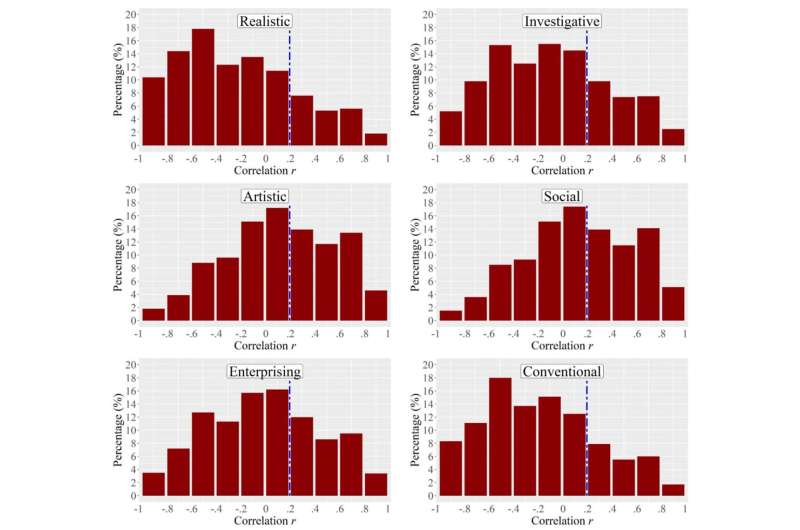This article has been reviewed according to Science X's editorial process and policies. Editors have highlighted the following attributes while ensuring the content's credibility:
fact-checked
peer-reviewed publication
trusted source
proofread
Why so many jobs are boring: Study identifies large interest gaps in US labor market

A recent study out of Michigan State University found large gaps between people's career interests and U.S. job demands. These gaps indicate that the interest demands of the U.S. labor market differ drastically from the supply of interested people, revealing how many people have unfulfilled interests at work.
The study
, published in the Journal of Business and Psychology, is the first to look at labor gaps using
"We know that interest fit predicts higher job performance and satisfaction, so these results show that many people are not able to optimize their productivity and well-being at work," said Kevin Hoff, lead author of the study and assistant professor in MSU's Department of Psychology.
The study found that "artistic" was the most popular interest among people, but it is also the least demanded among jobs with only 2% of jobs involving artistic interests. By contrast, the least popular interest among people was "conventional or otherwise described as systematic and detail-oriented work," but this interest is highly demanded among jobs.
Interest gaps were also larger at lower education levels. This suggests that higher education can provide more opportunities to achieve interest fit at work.
"Interests drive knowledge and skill development, which support the success of the labor force," added Hoff. "People need to be given more information about labor demands during career assessments so they can explore careers that not only provide a good fit, but also have available jobs."
To test the robustness of their results against future projections, the study compared job demands in 2014 and 2019 to projections for 2029 and found consistent interest gaps in each of these years. As artificial intelligence continues to impact jobs, the researchers expect to see adjustments happening in the labor market. However, due to the large size of the interest gaps, many jobs will likely remain boring for at least the near future.
More information: Kevin A. Hoff et al, Interest Gaps in the Labor Market: Comparing People's Vocational Interests with National Job Demands, Journal of Business and Psychology (2024). DOI: 10.1007/s10869-024-09945-8
Journal information: Journal of Business and Psychology
Provided by Michigan State University




















